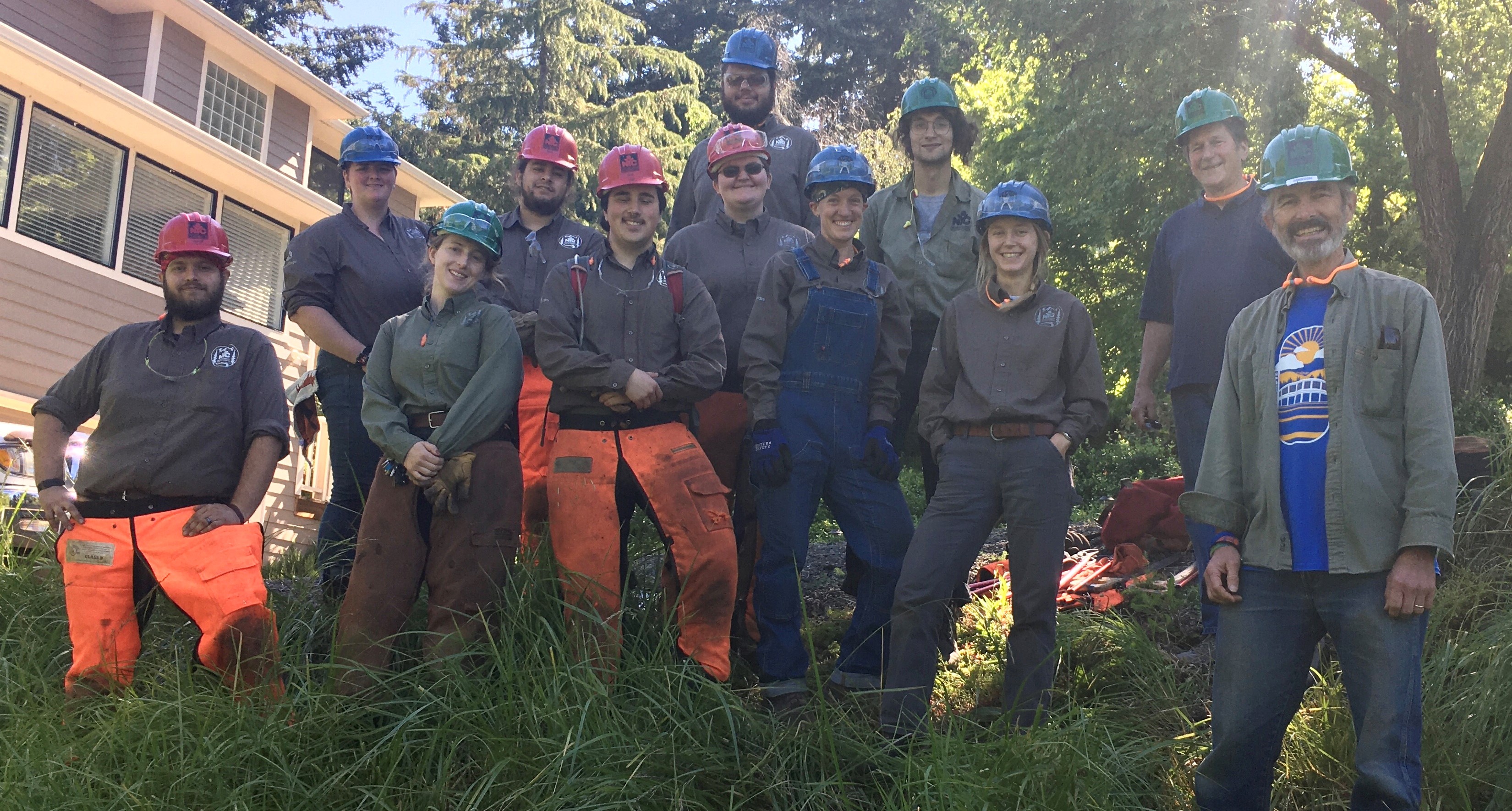|
If you're having trouble viewing this message, please visit my legislative web page at http://www.oregonlegislature.gov/prozanski/, click on "News" in the lower left-hand column and scroll down.
Dear friends,
With summer weather finally setting in, fire season is officially upon us. Please exercise care to prevent wildfires by avoiding use of open flames, fireworks and driving in grass. If you're camping or working outdoors with gasoline engine equipment, please determine what restrictions are in effect. Needless to say, no one wants to see a repeat of recent years' devastating fires.
Adding to the tragic news cycle so far in 2022, on June 24 the U.S. Supreme Court delivered their ruling in Dobbs v. Jackson Women's Health Organization. The decision of the Court, which overturns nearly 50 years of legal precedent, has triggered a national emergency. This decision places more than 33 million people at risk of losing access to vital reproductive health care. More than half of states will restrict access to critical care.
I believe that every person should be able to decide for themselves whether and when to parent. I am outraged at this extreme, ideological decision. Oregon has long been a national leader in expanding reproductive health care and defending the right to choose. Now more than ever before, we must continue to build on Oregon’s legacy of access to abortion and reproductive health services.
In 2017, my colleagues in the Legislature and I took a major step for reproductive rights by passing the Oregon Reproductive Health Equity Act (ORHEA), expanding coverage for folks in need of abortion services, including our undocumented neighbors. ORHEA codified the right to an abortion into Oregon state law. The Dobbs decision has no effect on Oregon's Reproductive Health Equity Act that guarantees right to receive abortion in Oregon. However, there is still work to do.
The impact of overturning Roe v. Wade will be felt largely by Black, Latino and Indigenous people, immigrants, people living with low incomes, and people in rural areas — communities who have long faced barriers to abortion access due to systemic barriers and discrimination. To increase access and build resources, during the 2022 Legislative Session, Oregon's Senate Democrats passed $15 million to support the Reproductive Health Equity Fund. The resources in this fund will be used to help make sure that folks without sufficient access to abortion services, particularly those living in service deserts in rural parts of the state, are in control of their bodies and their futures.
I will work to make sure that we continue to build on Oregon's legacy of abortion access. We must make sure that reproductive health care, including abortion, remains safe and accessible for all. Now more than ever before, our Legislature must continue the work of protecting abortion access and reproductive health care for all.
On June 22, I enjoyed a site visit with Northwest Youth Corps (NYC). Year after year when I visit, I'm impressed by the work ethic and motivation of NYC's young volunteers. Please visit NYC's website for a listing of their programs and to get involved if you can!

Below you will find information on:
- 2022 Session Accomplishments: Workforce & Economy
- Gov. Brown Encourages Oregonians to Apply to Boards and Commissions
- Bohemia Mining Days: July 14-16
- Lane County Fair: July 20-24
- Blackberry Jam Festival: July 30-31
- Douglas County Fair: August 10-13
I hope this information is helpful and informative for you or someone you know. As always, feel free to share your comments, questions or concerns with me by phone, mail or e-mail.

2022 Session Accomplishments: Workforce & Economy
Beginning with this e-bulletin, I'm sharing in-depth summaries of bills passed during the 2022 Legislative Session by subject area. Below is a comprehensive listing of accomplishments related to Oregon's workforce and economy — by Senate/House bill and in numerical order:
Senate Bills
SB 1505 - Compensation in Collegiate Sports: In 2021, The National College Athletics Association adopted a new policy allowing collegiate athletes to benefit from their name, image, and likeness to comply with the relevant U.S. Supreme Court decision. This legislation aligns Oregon with this change. It requires persons that produce intercollegiate sports team jerseys, video games or trading cards for profit to make royalty payments to student athletes for use of the student athlete's name, image or likeness.
SB 1513 - Protecting Bakery Workers from Forced Overtime: Oregon law generally prohibits an employer from requiring an employee at a mill or factory to work more than 10 hours in a day or 55 hours in a workweek. If the employer processes perishable products, the employer may claim undue hardship. Oregon's predictive scheduling law also requires employers with at least 500 employees worldwide in the retail, hospitality and food service industries to give employees a written work schedule at least two weeks in advance, however it exempted manufacturing. This legislation rectifies loopholes that some bakeries were exploiting to force workers to work overtime without any notice. The bill prohibits bakery and tortilla manufacturers from taking adverse employment action against an employee who refuses to work a mandatory overtime shift without at least five days’ notice.
SB 1545 - Future Ready Oregon: In 2020, Gov. Kate Brown tasked the Racial Justice Council with proposing ways to address racial, social and economic inequities in the state. The Council's work resulted in the Future Ready Oregon 2022 proposal, which aims to address the shortage of trained workers in the construction, health care and manufacturing sectors. This legislation creates grant programs to assist communities of color, women, low-income communities, rural communities, veterans, persons with disabilities and tribal members.
SB 1564 - Allowing to Limitation on Certain Hemp Licenses: This legislation authorizes a county board of commissioners that has declared a state of emergency related to cannabis to request the Oregon Department of Agriculture to deny new hemp grower licenses. The bill's purpose is to cut down on cannabis being trafficked into the black market.
SB 1565 - Right to Use Cash: Vulnerable Oregonians, such as those experiencing houselessness, often do not have access to credit and debit cards. At the same time, the average American's use of cash has been on a steady decline, which has led to businesses exclusively accepting non-cash payments. This legislation, which I was proud to introduce, makes it unlawful for a public accommodating business to refuse to accept legal U.S. tender, including cash and coins.
SB 1579 - Economic Equity Investment Program: Inadequate income in Oregon is concentrated disproportionately among Black, Indigenous, and other communities of color. Black households have the highest income inadequacy rate of all racial/ethnic groups in Oregon, at approximately 48 percent. This is followed closely by Latino households (41 percent) and then American Indians (30 percent) as compared to only 24 percent of white households. These discrepancies are reinforced by institutional racism that has manifested as exclusionary zoning, disparate access to credit, employment discrimination and more. This legislation seeks to mitigate the impacts of these inequities by helping BIPOC and other disadvantaged Oregonians in accessing grants. It creates the Economic Equity Investment Program and appropriates $50 million for this purpose. The program shall allocate grants to culturally responsive organizations in order to support economic stability, self-sufficiency, wealth building and economic equity among disadvantaged individuals, families, business and communities.
SB 1586 - Protections from Inappropriate Nondisclosure Agreements: In 2019, Legislature passed the Workplace Fairness Act (WFA). Under WFA, a private employer must adopt a written policy outlining their procedures and practices for reducing and preventing discrimination and sexual assault. The WFA also prohibits employers from entering into a nondisclosure agreement (NDA) as a condition of employment. It was brought to the attention of the Legislature that a loophole was being exploited that was effectively continuing the use of NDAs in inappropriate situations. SB 1586 closes this loophole. The law extends the prohibition regarding NDAs to cover former employees of private and public employers and clarifies that the prohibition covers current employees. The measure permits otherwise prohibited NDAs under specified circumstances and declares prohibited NDAs to be void and unenforceable.
House Bills
HB 4002 - Farmworker Overtime: Both state and federal law establish a maximum hour requirement of 40 hours per week and require employers pay one and one-half times the regular rate for all hours worked over 40 hours. However, agricultural workers were exempt from both the state and federal maximum hour requirement laws and therefore were not entitled to overtime pay. This inequity was accentuated by the intense manual labor, extreme heat and chemical exposure that farmworkers often face. HB 4002 remedies this inequity by phasing in overtime limits over several years, starting at 55 hours in 2023 and reaching 40 by 2027. Farmworkers will be entitled to one and half times pay for each hour beyond these limits. HB 4002 also allocates $55 million in tax credits and $10 million in grants or loans to help farm owners make this transition.
HB 4005 - Child Care Funding: This legislation invests $100 million into child care, making changes to increase workforce and infrastructure capacity across Oregon. It also modifies provisions governing the Employment Related Day Care subsidy program, including establishing a definition of subsidized care facilities and requiring subsidized care facilities and subject individuals to participate in the central background registry.
HB 4015 - Increasing Loan Amount Access for Small Businesses: This legislation permanently increases the maximum loan amount to $1 million and the cap on annual revenue to $1.5 million for Oregon small businesses and start-ups through the Entrepreneurial Development Loan Fund. The fund is housed in Business Oregon.
HB 4113 - Worker Compensation for Firefighters with Ovarian Cancer: Oregon worker's compensation laws establish that certain cancers, including oral and male reproductive cancers, are presumed to be a compensable occupational disease for non-volunteer firefighters who have been on the job for at least five years. This legislation adds bladder and female reproductive cancers to this list. An employer can rebut the presumption by providing clear and convincing medical evidence that cancer was not caused or materially contributed to by the firefighter’s employment.
House Bill 4117 - Tax Filing Assistance for Marginalized Communities: This legislation requires the Department of Human Services to establish a grant program to provide funding to culturally specific and responsive organizations in support of outreach and education related to taxes, and tax filing assistance for low-income residents who may be eligible for tax credits but are not filing income taxes.
HB 4157 - $600 Payments to Lower-Income Oregonians: The COVID-19 pandemic put many working Oregonians in a financial crisis. This fact was especially true for low-income Oregonians, who also tended to have the most direct exposure risk with less ability to work remotely. This legislation seeks to help ease the financial burden on these community members. It directs the Oregon Department of Revenue (DOR) to provide a one-time payment of $600 to lower-income individuals that received the Earned Income Tax Credit in the 2020 tax year and who worked during the first year of the pandemic. DOR began distributing payments in June.
Gov. Brown Encourages Oregonians to Apply to Boards and Commissions
Governor Brown is calling on Oregonians who have interest in serving the state to apply for membership on any one of the 150 state boards and commissions that are actively recruiting new members, including two new councils — the Emergency Preparedness Advisory Council and the Local Government Emergency Management Advisory Council.
Public members of boards and commissions are people who may not have regular, ongoing experience in a specific topic area, but have a general interest in a particular board or commission’s work arena. Major issues range from consumer protection, economic development, and education, to conservation and health care — all of which are critical to the ongoing success of the state.
The Governor is committed to ensuring that all boards and commissions represent the growing age, racial, and gender diversity of the state. This is an amazing opportunity to pool collective viewpoints, visions, and hopes for Oregon — and all community members are welcome and encouraged to serve. A full list of boards and commissions with one or more vacancies is available here. To submit an application, please visit the state boards and commissions website and follow the instructions to apply.
Bohemia Mining Days: July 14-16
Bohemia Mining Days celebrates Cottage Grove's colorful history. The family-friendly festival is organized by a board of community-minded volunteers who work closely with the festival coordinator throughout the year to ensure this annual summer tradition lives on for future generations to enjoy. It features a carnival, pony rides and much more. More information can be found on Bohemia Mining Days' website: http://bohemiaminingdays.org/.

Lane County Fair: July 20-24
The Lane County Fair features entertainment, food vendors with many different types of fare, rides, games and more. Purchase tickets or get concert information and ride lists along with all the information needed to enter contests and competitions at: http://www.atthefair.com/.

Blackberry Jam Festival: July 30-31
The Blackberry Jam Festival in Lowell is a wholesome, free community event featuring great music, unique crafts and delicious food. Located in the heart of the Willamette Valley, the festival makes a great summer weekend trip. More information can be found on the Jam's website: http://www.blackberryjamfestival.com/.

Douglas County Fair: August 10-13
The Douglas County Fair features entertainment, a carnival, food court, livestock and much more for all ages. Visit the official Douglas County Fair website at: http://www.co.douglas.or.us/dcfair/fair/.

|